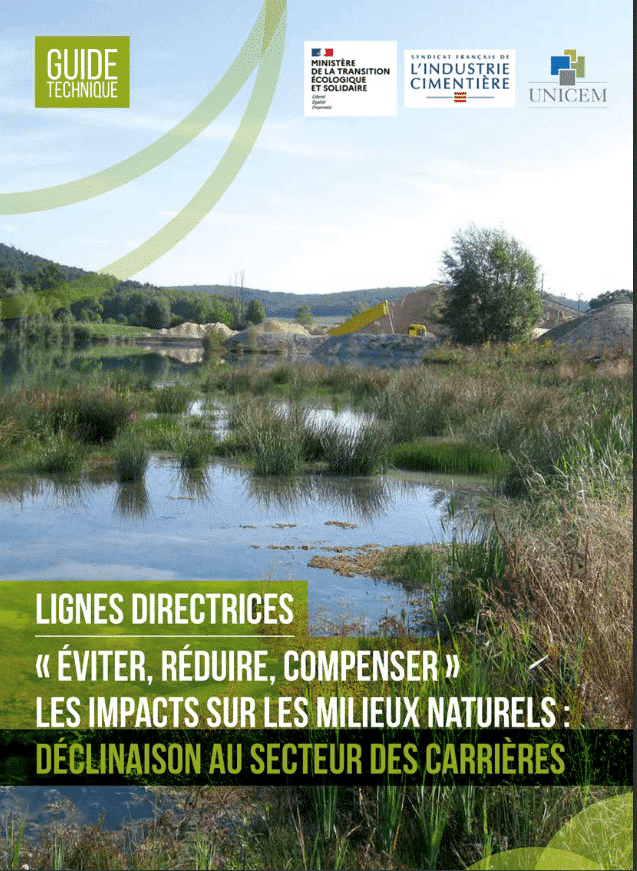Applying the ARO approach to the quarry sector
Introduced by the law of 1976 relating to the protection of nature and reinforced in 2016 by the law for the restoration of biodiversity, the “avoid, reduce, offset” sequence (ARO) aims to include the recognition of the repercussions of an industrial or development project on its environment from the start of its design. That sequence thus gives priority to the steps for avoiding damage to the environment. Following that, it proposes reduction of the impacts that could not be avoided and finally, as a last step, it requires offset of the significant effects that could not be either avoided or sufficiently reduced.
Although the objectives of the ARO sequence apply with the same stringency to all projects, the conditions for its implementation may differ in relation to the sectors of activity, some of which may present very specific features in respect of natural environments.
This is the case for the quarry sector, an activity which presents several particular features: the quarries are temporary, their operation is progressive, and the environments that directly result from the operation very often have pioneer characteristics and can be favourable to many animal and plant species. Finally, mining activity is, by its nature, restricted by geology, which can limit the opportunities for avoidance.
That is why Biotope has supported the national quarrying and construction materials union, the UNICEM, in producing a guide to applying the ARO sequence to the quarry sector, applied to the natural environments, working closely with the Ministry for Ecological and Sustainable Transition.
With a firm emphasis on the operational side, this guide presents original tools and a large compendium of examples that make it possible to capitalise on the experience and the knowhow of the quarry sector in ARO matters.

This guide is mainly aimed at quarry operators, but also constitutes a common benchmark for all those concerned by the application of the ARO sequences to the quarry sector, regardless of their degree of involvement.
The guide can be downloaded free on the UNICEM site. http://www.unicem.fr/2020/06/22/eviter-reduire-compenser-un-guide-de-reference-pour-proteger-la-biodiversite/